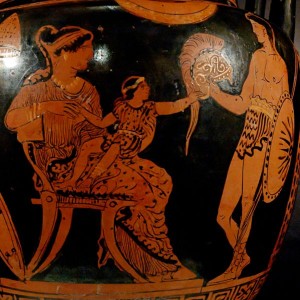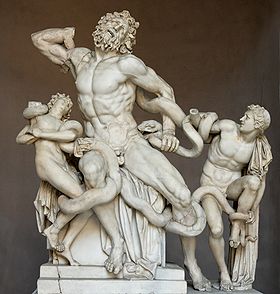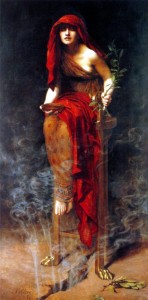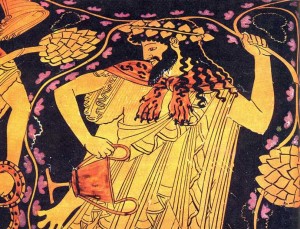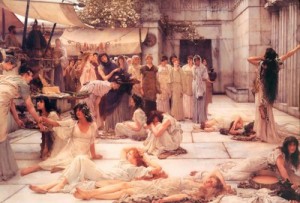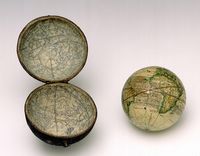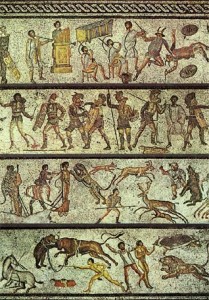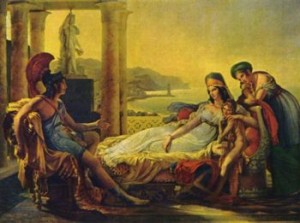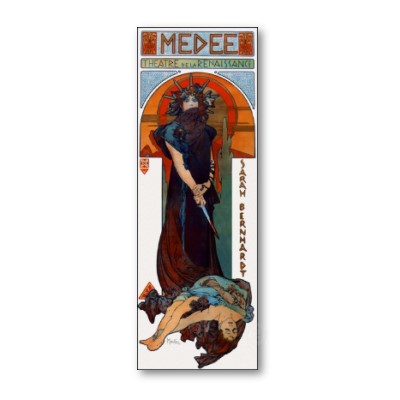 Click here for direct link to audio Episode #23.
Click here for direct link to audio Episode #23.
Click here for previous episodes.
Did Medea have a choice? Surely, you say, she could have just killed the princess and done enough damage to Jason’s hopes and dreams. Why, you ask, did she have to go and kill her children to top it all off?
Well, the warrior class from the Golden Age of Heroes would certainly have understood the insult to Medea’s ti’me. Ti’me (pronounced tee-may) was the honor code by which the ruling class lived—and when it was insulted, there was hell to pay! Achilles and Ajax both had their ti’me insulted. The entire Iliad is about Achilles’s honor being insulted: Sing, goddess, of the wrath of Achilles!
Medea’s children would have lived the rest of their lives in danger. Travelling with their cast-off mother to Athens would have made them forever outcasts. Outsiders. Obviously, they couldn’t go back to Colchis after Medea’s dramatic exit with her then-new beau, Jason. If they would have stayed in Corinth with Jason and his new gal, the step-mom’s kids would take precedence over Medea’s kids. That’s always hard. And if you know anything about the ruling families of Imperial Rome, you know that step-children are the first to be bumped off. Their very existence threatens the power of the new wife and her brood. And the power women had over their husbands was all about providing children (READ: male) for them.
Julius Caesar’s wife Calpurnia could not bear him children, so he was played like a card by Cleopatra, who knew her trump card was giving him a son, which she did. How horrible good Calpurnia must have felt, when she heard Cleopatra was going to bear her husband a child! And what about Henry VIII? English children know the outcome of his six wives when they memorize this: Divorced-beheaded-died, Divorced-beheaded-survived. All because the king needed a male heir! 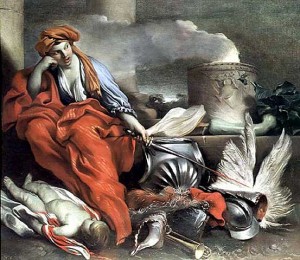
But Medea does the abhorrent because she knows it is the only way to cripple Jason. Sure, if the princess dies, he can always get a new one. But if the princess dies and Jason’s own children die, Jason has to start from Square One. Medea achieves her end. She admits that it will destroy her, too, but she believes she has no choice.
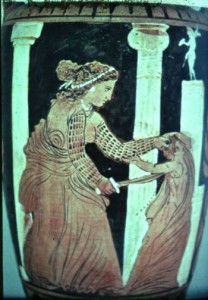 So—what do you think?
So—what do you think?
Write in to let me know your  thoughts on these great questions
of honor and justice.
And how interesting to compare the
shy, innocent maiden Medea, in the beginning of  Apollonius of Rhodes’ Argonautika,  to the warrior Medea in Euripides’ play The Medea! Check it out!

